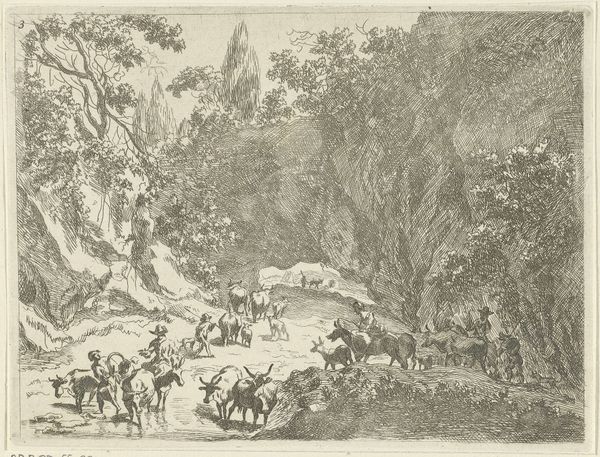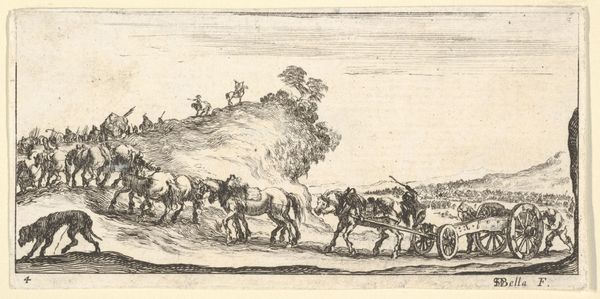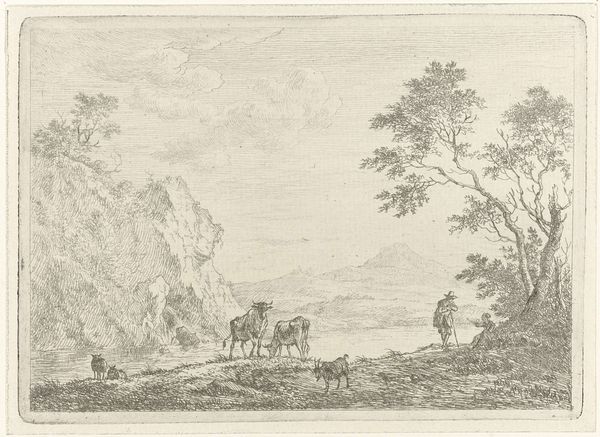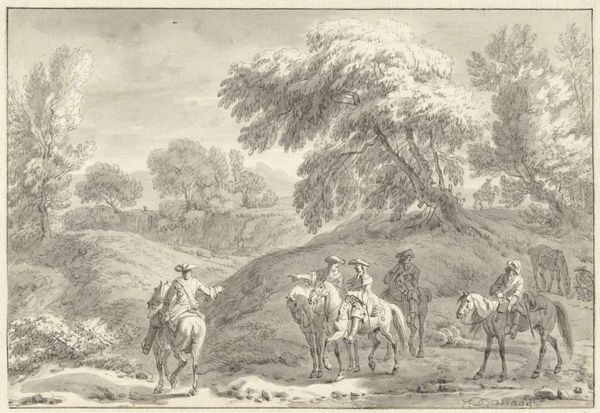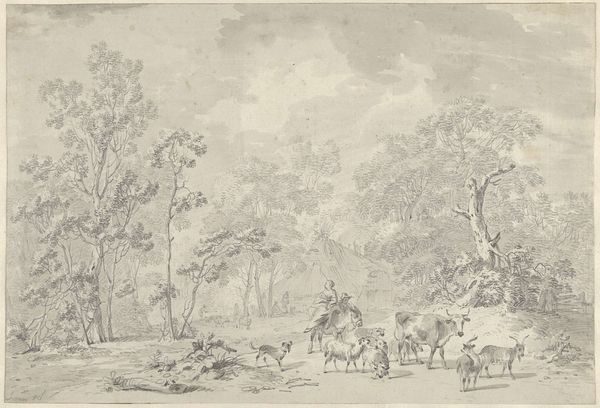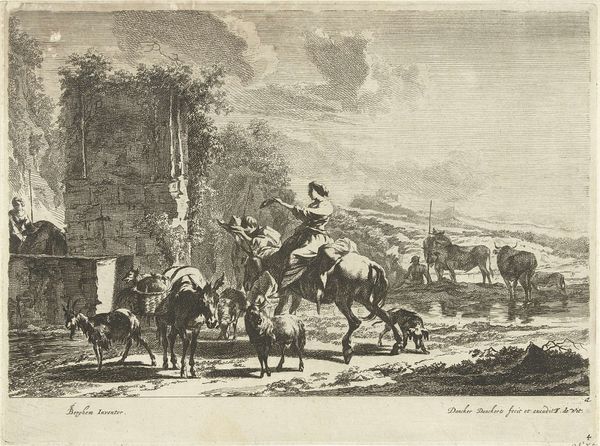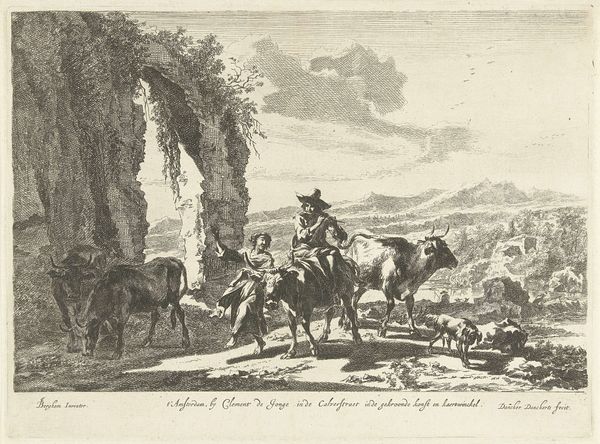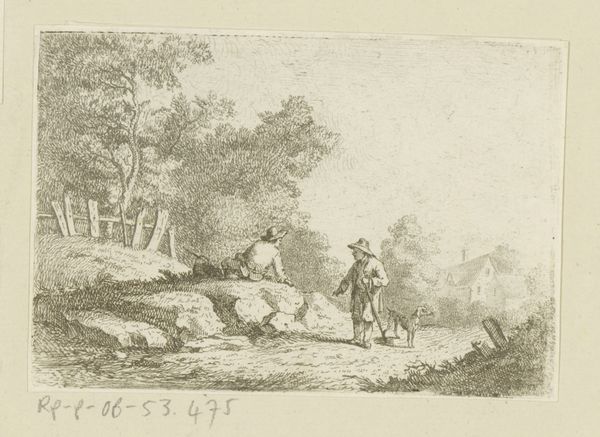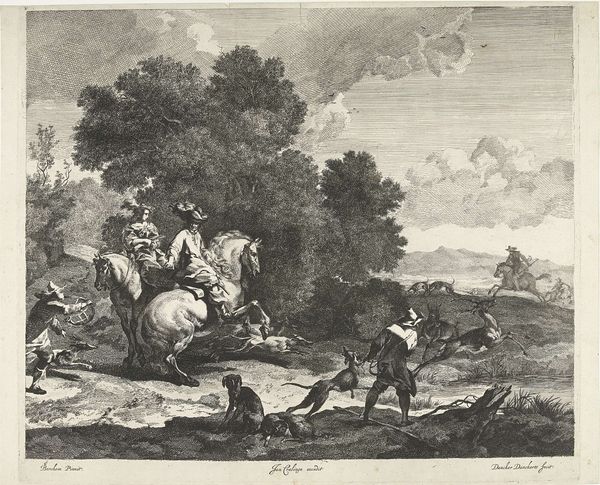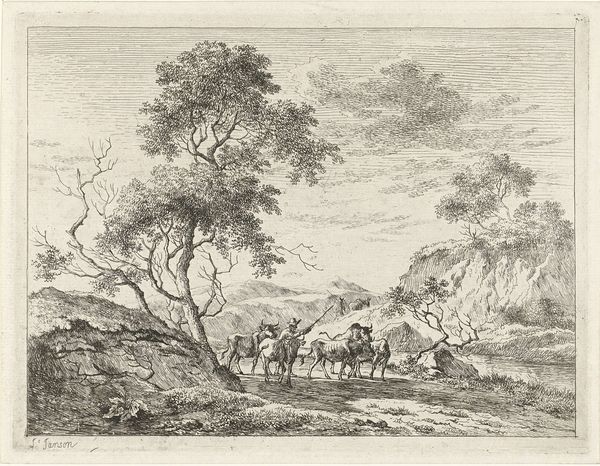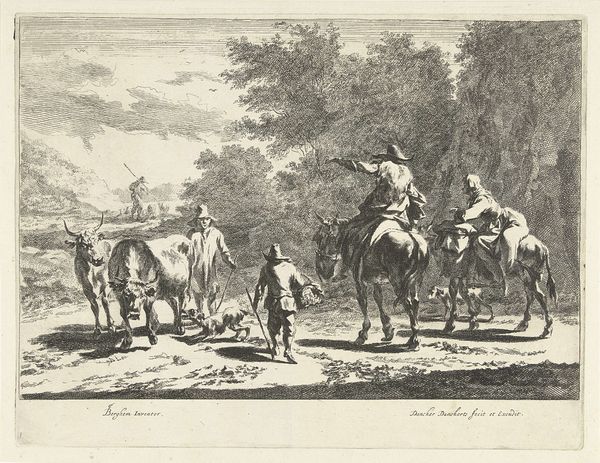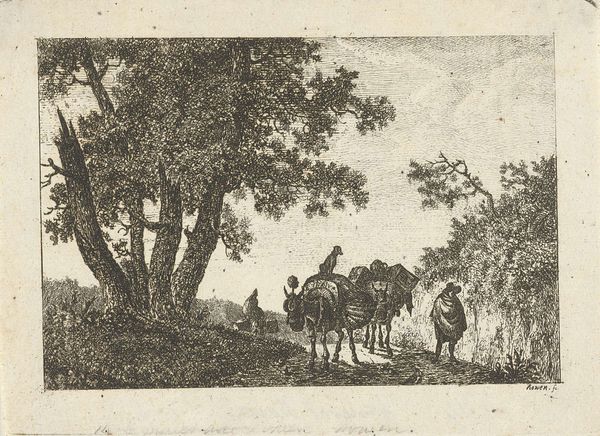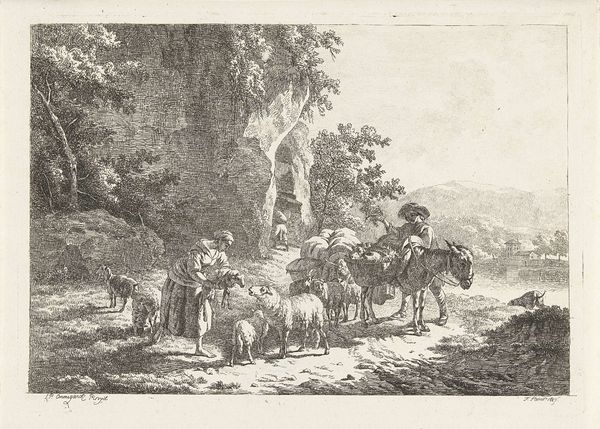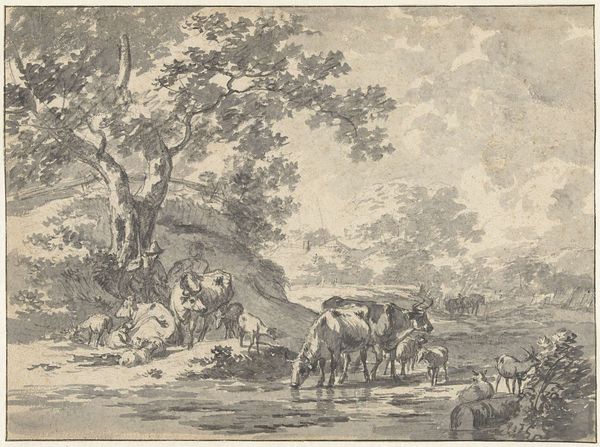
drawing, etching
#
drawing
#
dutch-golden-age
#
etching
#
landscape
#
etching
#
figuration
#
genre-painting
Dimensions: height 150 mm, width 196 mm
Copyright: Rijks Museum: Open Domain
Johannes Gronsveld made this print of a path with shepherds and cattle sometime in the late 17th or early 18th century. As an etching, this image involved careful labor. The artist would have first coated a copper plate with wax, then used a sharp needle to scratch away lines of the composition, exposing the metal. Immersing the plate in acid would bite into those exposed lines, creating grooves to hold ink. The deeper the bite, the darker the line would appear. Gronsveld would have needed great skill to modulate the tones, suggesting the play of light on the figures and landscape. The result gives us insight into the period's rural life, but also highlights the important role of skilled handwork in even relatively ‘low’ art forms like printmaking. While not as costly as painting, prints like this one nevertheless required a significant investment of time and expertise. They were designed to be collected and admired.
Comments
No comments
Be the first to comment and join the conversation on the ultimate creative platform.
